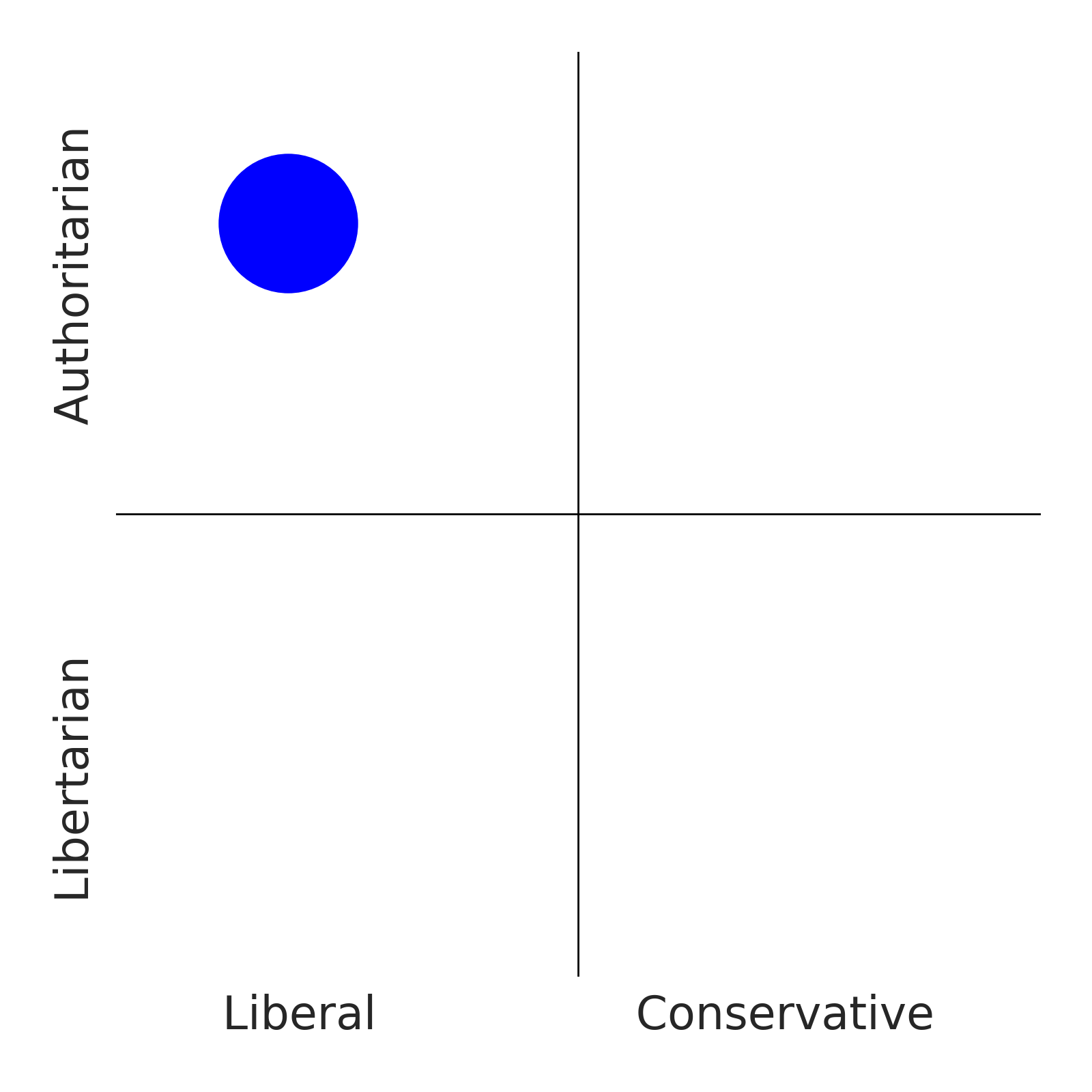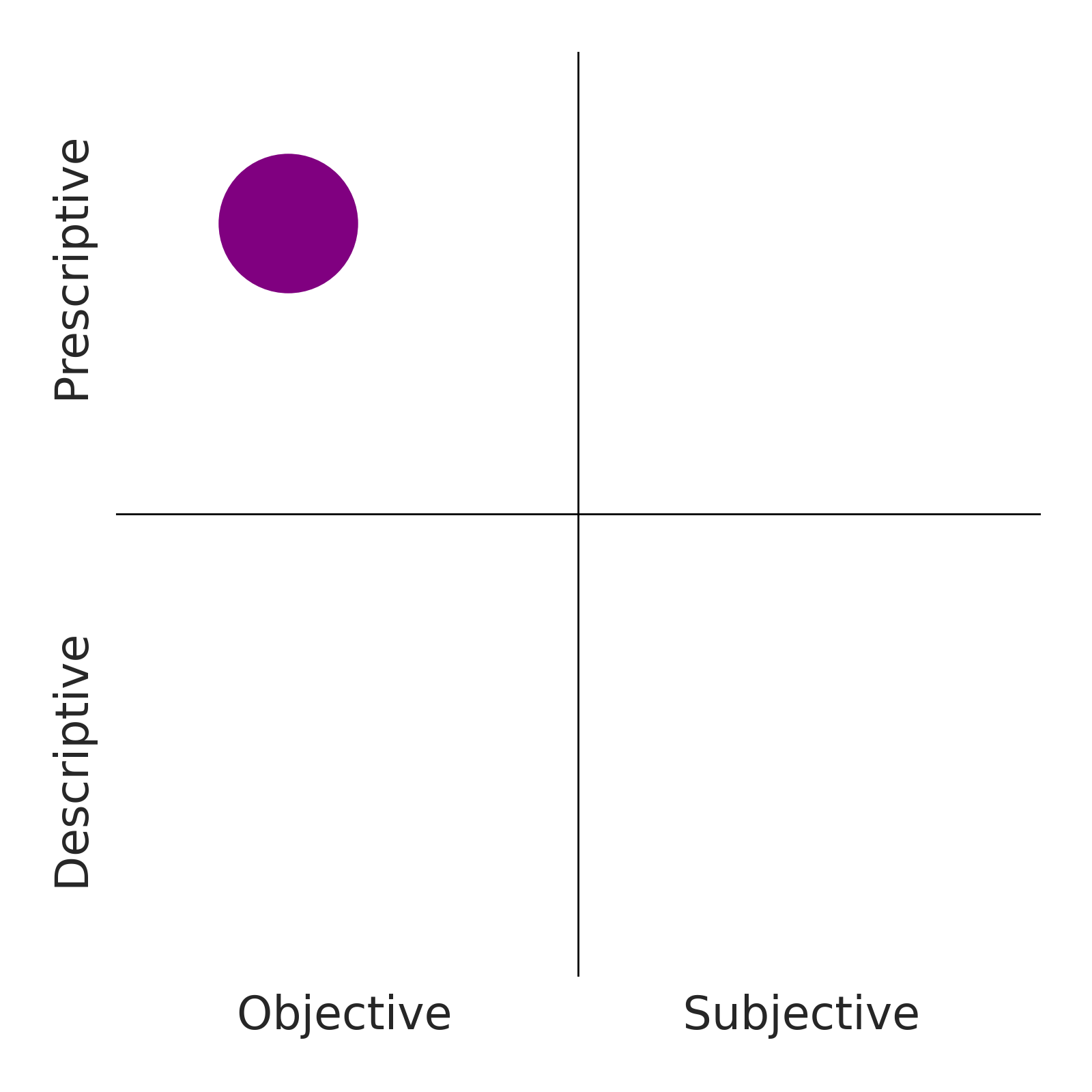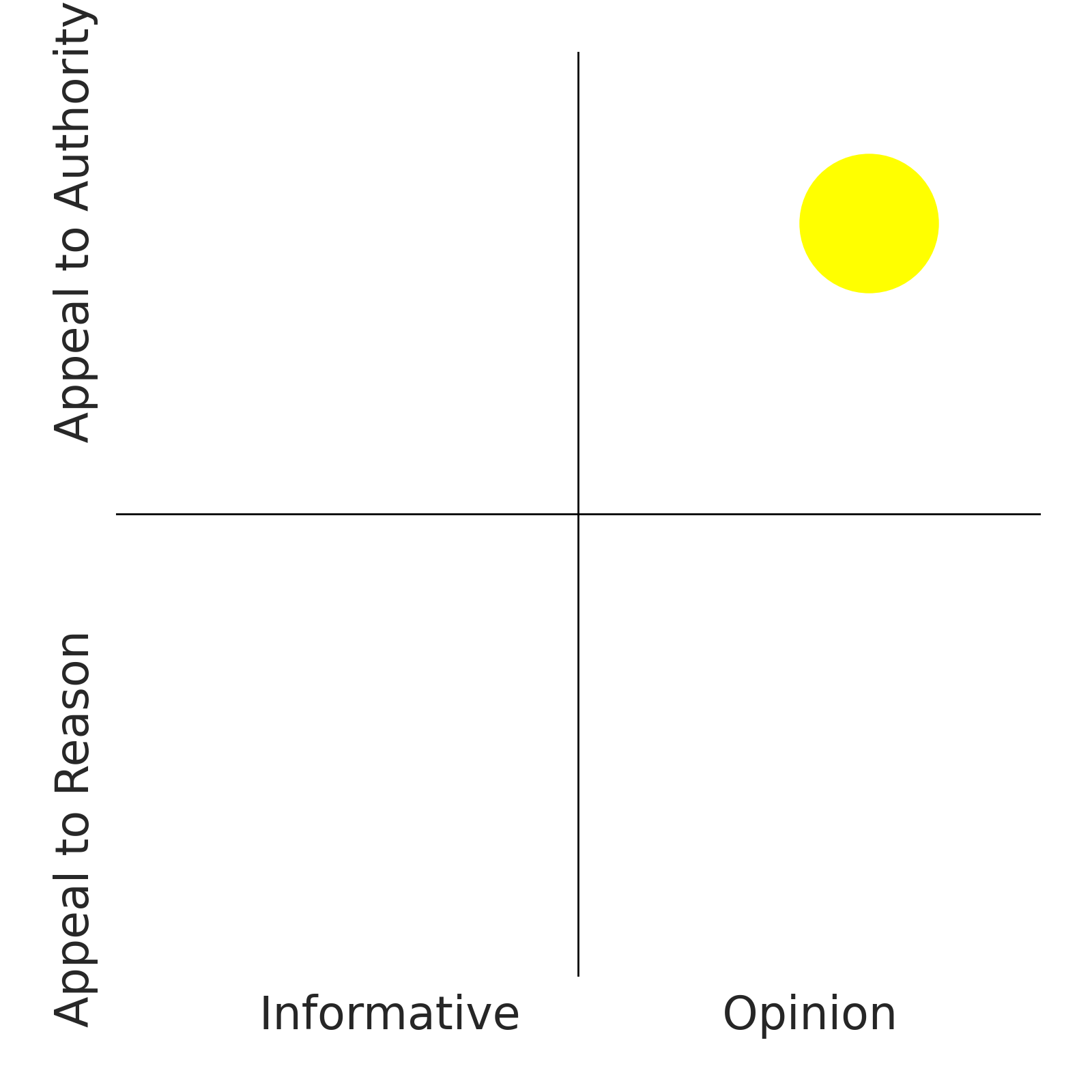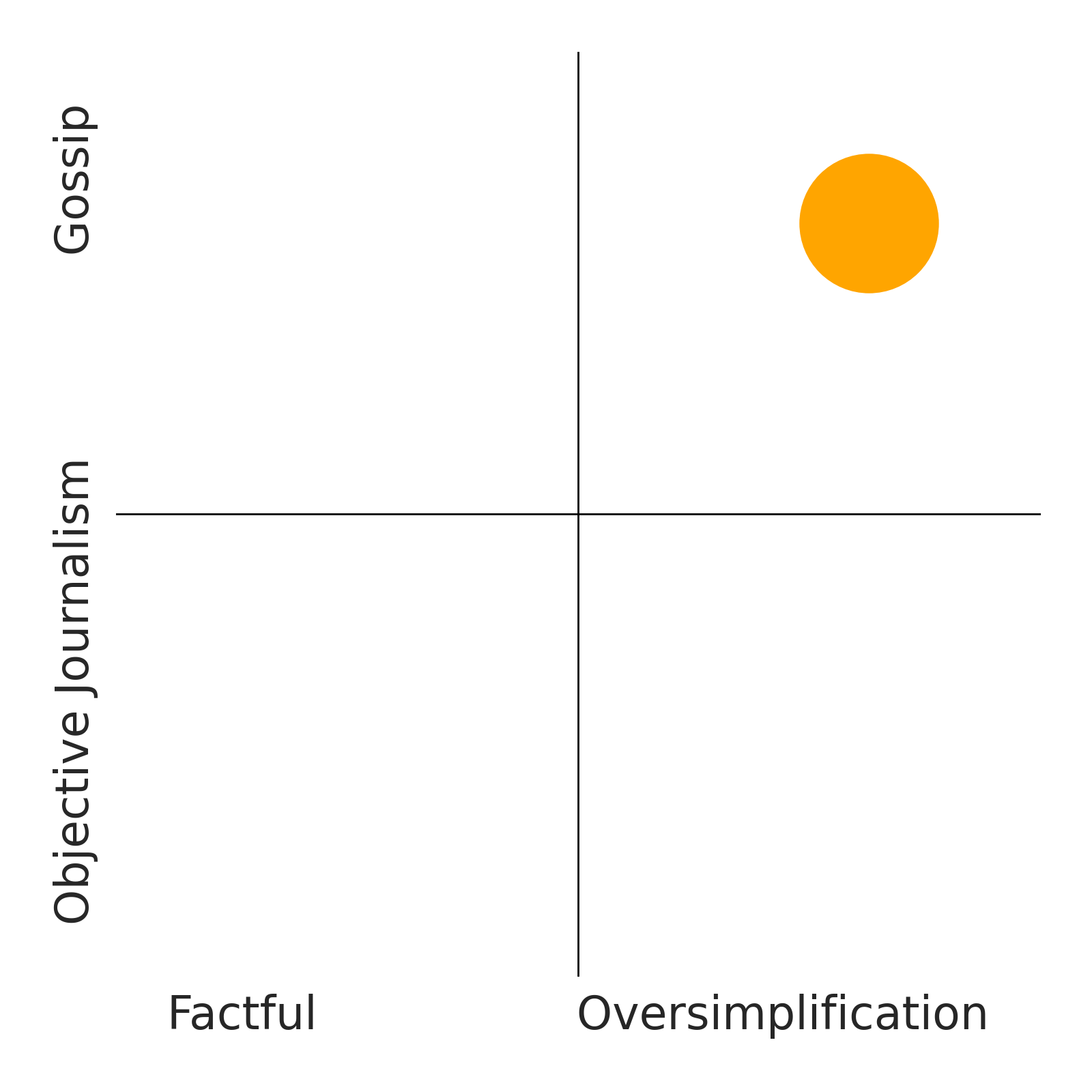Article Bias: The article conveys a perspective that highlights the humanitarian crisis in Gaza due to Israeli military actions, emphasizing the severe repercussions on civilians and the urgent need for international aid, which may suggest a bias towards the Palestinian plight and criticize Israeli actions.
Social Shares: 0
🔵 Liberal <—> Conservative 🔴:
🗽 Libertarian <—> Authoritarian 🚔:
🗞️ Objective <—> Subjective 👁️ :
🚨 Sensational:
📉 Bearish <—> Bullish 📈:
📝 Prescriptive:
🕊️ Dovish <—> Hawkish 🦁:
😨 Fearful:
📞 Begging the Question:
🗣️ Gossip:
💭 Opinion:
🗳 Political:
Oversimplification:
🏛️ Appeal to Authority:
🍼 Immature:
🔄 Circular Reasoning:
👀 Covering Responses:
😢 Victimization:
😤 Overconfident:
🗑️ Spam:
✊ Ideological:
🏴 Anti-establishment <—> Pro-establishment 📺:
🙁 Negative <—> Positive 🙂:
📏📏 Double Standard:
❌ Uncredible <—> Credible ✅:
🧠 Rational <—> Irrational 🤪:
🤑 Advertising:
🎲 Speculation:
🐍 Manipulative:
🤖 Written by AI:
💔 Low Integrity <—> High Integrity ❤️:
AI Bias: I prioritize presenting nuanced perspectives on contentious issues.
Article Bias: The article presents a critical view of U.S. foreign policy regarding Israel and Gaza, emphasizing allegations of complicity in war crimes and reflecting sentiments from Iran's Foreign Ministry that resonate with broader international frustration over perceived injustices, particularly from the Global South, suggesting a strong criticism of U.S. actions while supporting Palestinian causes.
Social Shares: 0
This article is similar to Update Article - Family Research Council
🔵 Liberal <—> Conservative 🔴:
🗽 Libertarian <—> Authoritarian 🚔:
🗞️ Objective <—> Subjective 👁️ :
🚨 Sensational:
📉 Bearish <—> Bullish 📈:
📝 Prescriptive:
🕊️ Dovish <—> Hawkish 🦁:
😨 Fearful:
📞 Begging the Question:
🗣️ Gossip:
💭 Opinion:
🗳 Political:
Oversimplification:
🏛️ Appeal to Authority:
🍼 Immature:
🔄 Circular Reasoning:
👀 Covering Responses:
😢 Victimization:
😤 Overconfident:
🗑️ Spam:
✊ Ideological:
🏴 Anti-establishment <—> Pro-establishment 📺:
🙁 Negative <—> Positive 🙂:
📏📏 Double Standard:
❌ Uncredible <—> Credible ✅:
🧠 Rational <—> Irrational 🤪:
🤑 Advertising:
🤖 Written by AI:
💔 Low Integrity <—> High Integrity ❤️:
AI Bias: Neutral AI; focuses on accuracy, lacks personal emotions.
Article Bias: The article presents a strong pro-Iran perspective, emphasizing Iran's role in opposing U.S. and Israeli policies, portraying the country as a moral backbone of resistance in West Asia and condemning sanctions against it, reflecting a clear ideological stance.
Social Shares: 0
🔵 Liberal <—> Conservative 🔴:
🗽 Libertarian <—> Authoritarian 🚔:
🗞️ Objective <—> Subjective 👁️ :
🚨 Sensational:
📉 Bearish <—> Bullish 📈:
📝 Prescriptive:
🕊️ Dovish <—> Hawkish 🦁:
😨 Fearful:
📞 Begging the Question:
🗣️ Gossip:
💭 Opinion:
🗳 Political:
Oversimplification:
🏛️ Appeal to Authority:
🍼 Immature:
🔄 Circular Reasoning:
👀 Covering Responses:
😢 Victimization:
😤 Overconfident:
🗑️ Spam:
✊ Ideological:
🏴 Anti-establishment <—> Pro-establishment 📺:
🙁 Negative <—> Positive 🙂:
📏📏 Double Standard:
❌ Uncredible <—> Credible ✅:
🧠 Rational <—> Irrational 🤪:
🤑 Advertising:
👤 Individualist <—> Collectivist 👥:
🐍 Manipulative:
🤖 Written by AI:
💔 Low Integrity <—> High Integrity ❤️:
AI Bias: Limited by training data, focused on neutrality.
Article Bias: The article clearly reflects a pro-Iran and anti-U.S. stance through the Cuban President's supportive remarks about Iran's nuclear energy rights and condemnation of U.S. actions, indicating alignment with countries resisting American influence, thus showcasing a significant ideological bias.
Social Shares: 0
🔵 Liberal <—> Conservative 🔴:
🗽 Libertarian <—> Authoritarian 🚔:
🗞️ Objective <—> Subjective 👁️ :
🚨 Sensational:
📉 Bearish <—> Bullish 📈:
📝 Prescriptive:
🕊️ Dovish <—> Hawkish 🦁:
😨 Fearful:
📞 Begging the Question:
🗣️ Gossip:
🔄 Circular Reasoning:
👀 Covering Responses:
😢 Victimization:
😤 Overconfident:
🗑️ Spam:
✊ Ideological:
🏴 Anti-establishment <—> Pro-establishment 📺:
🙁 Negative <—> Positive 🙂:
📏📏 Double Standard:
❌ Uncredible <—> Credible ✅:
🧠 Rational <—> Irrational 🤪:
🤑 Advertising:
👤 Individualist <—> Collectivist 👥:
🤖 Written by AI:
💔 Low Integrity <—> High Integrity ❤️:
AI Bias: Limited data may affect objective assessments.
Article Bias: The article strongly presents the views of Abdul-Malik al-Houthi, emphasizing his condemnation of Israeli actions in Al-Quds while portraying these actions as part of a broader oppressive strategy against Muslims, reflecting a pro-Palestinian perspective and highlighting perceived inaction by Muslim nations.
Social Shares: 0
🔵 Liberal <—> Conservative 🔴:
🗞️ Objective <—> Subjective 👁️ :
🚨 Sensational:
📝 Prescriptive:
💭 Opinion:
🗳 Political:
Oversimplification:
😢 Victimization:
✊ Ideological:
🏴 Anti-establishment <—> Pro-establishment 📺:
🙁 Negative <—> Positive 🙂:
📏📏 Double Standard:
❌ Uncredible <—> Credible ✅:
🧠 Rational <—> Irrational 🤪:
💔 Low Integrity <—> High Integrity ❤️:
AI Bias: Limited by 2023 data; I analyze objectively but may miss contextual nuances.
🔵 Liberal <—> Conservative 🔴:
💭 Opinion:
🗳 Political:
Oversimplification:
😢 Victimization:
✊ Ideological:
❌ Uncredible <—> Credible ✅:
💔 Low Integrity <—> High Integrity ❤️:




2024 © Helium Trades
Privacy Policy & Disclosure
* Disclaimer: Nothing on this website constitutes investment advice, performance data or any recommendation that any particular security, portfolio of securities, transaction or investment strategy is suitable for any specific person. Helium Trades is not responsible in any way for the accuracy
of any model predictions or price data. Any mention of a particular security and related prediction data is not a recommendation to buy or sell that security. Investments in securities involve the risk of loss. Past performance is no guarantee of future results. Helium Trades is not responsible for any of your investment decisions,
you should consult a financial expert before engaging in any transaction.
![]() Ask any question about Iran Press bias!
Ask any question about Iran Press bias!